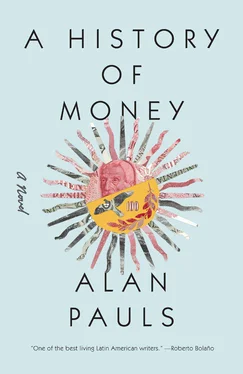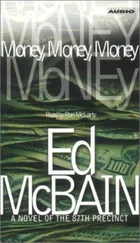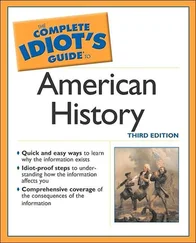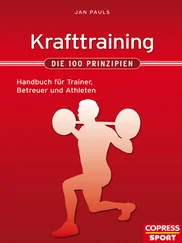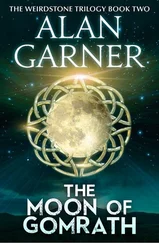Gambling is his thing — just as other men might take drugs, shoplift, cross-dress, or drive at 200 kilometers per hour — and he’s alone in it, and everything that will ever be known of him while he’s in his thing until they both die off will only emerge by error or accident. Because “things” are worlds, and no world can close itself off completely, no matter how perfect it is. That morning, in the kitchen, his mother realizes that there will never be space in him for her. It has nothing to do with her, with what she does or does not do. The proof is his absolute lack of guilt, the almost jovial ease with which he skips over the trouble of a confession and assumes something that for her, until that moment, had been a mystery, and had tortured her unbearably. He’s never mentioned his gambling before for precisely the reason that he’s talking about it now, which is also why he’s talking about it in the way he is, like someone thinking aloud, without any need for interlocutors. His silence has never been a secret. That’s why he never felt the urge to confess. For his mother, this is the first and perhaps the only night of gambling, and it’s charged with surprises and revelations. For his father, it’s one more in a series. That’s why he’s talking about it as though his mother had known all about each of those other ones that led up to it.
And now he knows, too. He’s almost more aware of it than his father himself, given the mimetic impulse awoken in him by certain indeterminately sick people, the undiagnosed or those trapped in the webs of confusing diagnoses (melancholics, perverts, dreamers, idolaters, procrastinators), with whose ills he claims both a rare intimacy, as though he had suffered them in some other life, and a peculiar distance, characterized by compassion and astuteness and more befitting a doctor than a patient. “At the casino, my darling,” his mother tells him after bursting out laughing, and once the first moment of astonishment has passed, he peeps around the door she’s cracked open for him and sees a rapid panorama of it all, the gold and red of the carpets, the flashing lights on the slot machines, the waiters carrying trays of drinks between tables, the employees in bow ties and waistcoats taking piles of chips out of boxes, the tables surrounded by gamblers on their feet, the baize tabletops, the cards coming out of the sabot, and, with his back to him, his jacket off and hanging from the back of his seat, two halos of sweat around his armpits, and his head enveloped in the smoke from his own cigarette, his father, leaning very far forward, his shoulders sunken and his elbows resting on the edge of the table.
Sometimes he can’t help himself, and he lets slip a question about roulette wheels, croupiers, cheats, or the secret, silent rooms where he imagines big winners go to exchange their chips for money. Other times he skips straight to action, thinking he’s much more likely to rouse his father by making himself an example and demonstrating everything he doesn’t know and wants to learn. And so he finds any reason to start shuffling cards, and shuffles badly, exaggerating his clumsiness, trying to stir his father’s pride and convince him to teach him, or deliberately loses card games in an attempt to awaken his pity or his fury and so finally extract the drops of his expertise that will save him from more humiliation. They’re feeble, hopeless efforts. His father responds indifferently, with evasions that he accepts without protest. After a while he stops trying. Lost cause. But how he rejoices in those moments when something unexpected, a random, utterly unintentional spur, dents the shield protecting his father and his world and reopens for a second the door his mother once opened; when a tiny but dazzling flash of that forbidden realm escapes and reaches him, like music escaping a party and reaching some far-off room, and he feels as though a seed is being planted in him. It happens rarely, generally with movies, TV programs, plays, books that at some point touch on the subject of gambling, gamblers, the practice of betting. Everything will be fine, the scenes will be flowing as normal, the film more or less entertaining, the book well or poorly written, the play moving forward — until someone shows up and cuts a deck of cards, or a character tells a story about a night at a casino while sitting at the table after dinner, or a ball takes a few hesitant leaps on the slope of a spinning roulette wheel, and his father, who had been following the developments in silence, entrenched in his indifference, suddenly stiffens, as if struck by an invisible dart, and all of his senses, which until that moment have been floating and dispersed, surface again on his face as though called up for battle, and then fire on what he’s been looking at. In a fraction of a second, he’s transformed into what he’s always been but had been keeping in reserve: the defender of an experience that nobody else knows firsthand, and about which only he possesses the ultimate truth. Being a film fanatic, for example, he readily defends the liberties taken by cinema in the name of art as instances of poetic license that no demand from reality can ever rightfully challenge, and yet he’s feverishly sensitive when it comes to films about gambling. Everything strikes him as sloppy and ludicrous, not because it’s artificial but because it’s wrong. His arguments, when he makes them — when he doesn’t restrict himself to giving a sarcastic little smile instead, a gesture of disdain he aims at the television, the scene, the screen where the outrage is being committed — are unspecific, always general, often sententious. They’re really vetos, laws that can only be formulated negatively. “Nobody who’s ever played baccarat looks at women while he’s playing,” he says. Or: “For a true gambler, cash is never a problem.” Or: “Gamblers don’t have lucky rituals.” Or: “There’s no such thing as a nice croupier.” Or: “No gambler wins or loses everything in the first hour of play.” Or: “Nobody ever plays everything.” He’s also riled by the overall aesthetic effect, the gleaming, almost glossy image with which cinema beautifies gambling, where the backs of the playing cards twinkle like mirrors and the ice in the glasses like diamonds, the green baize looks like English grass, and the good gamblers are always elegant while the bad ones are monsters covered in scars and given to the vilest tricks, incapable of doing or deciding anything without the help of the entourage of baleful assistants monitoring the table incognito. But the heart of the reproach is something else, something more fundamental, more radical. What sickens his father is that they’re always secondhand versions, hearsay, pale echoes of echoes. They might keep audiences pinned to their seats, smash the box office, and claim to be based on true stories, but to his father — to anyone who’s been submerged in the original experience — it’s obvious that nobody involved in the concoction of these swindles has ever been there. None of them has lived the gambling life. And it’s this lack of life that poisons these representations with an irremediable falseness.
Maybe this is his father’s real life, this hidden one, the one they never see, this strange combination of gated paradise and toxic cellar, of orgiastic oasis and forced-labor camp, of which all they can ever hope to know comes from the leaks his father allows to escape every so often, almost against his will, like a medium opening his mouth and speaking and closing it again only when instructed to by the spirit speaking through him. It’s a slightly distressing idea: it forces him to think of the father he can see, first the everyday one (while he’s still married to his mother), then the weekend one (after the order to leave Ortega y Gasset), as a sort of body double for some invisible other, a replica that mechanically, as though following an instruction manual, carries out everything that should be done by one father, the original one, who is apparently too busy guessing cards, doubling bets, and frightening rivals with hands he doesn’t have to do a father’s work.
Читать дальше
